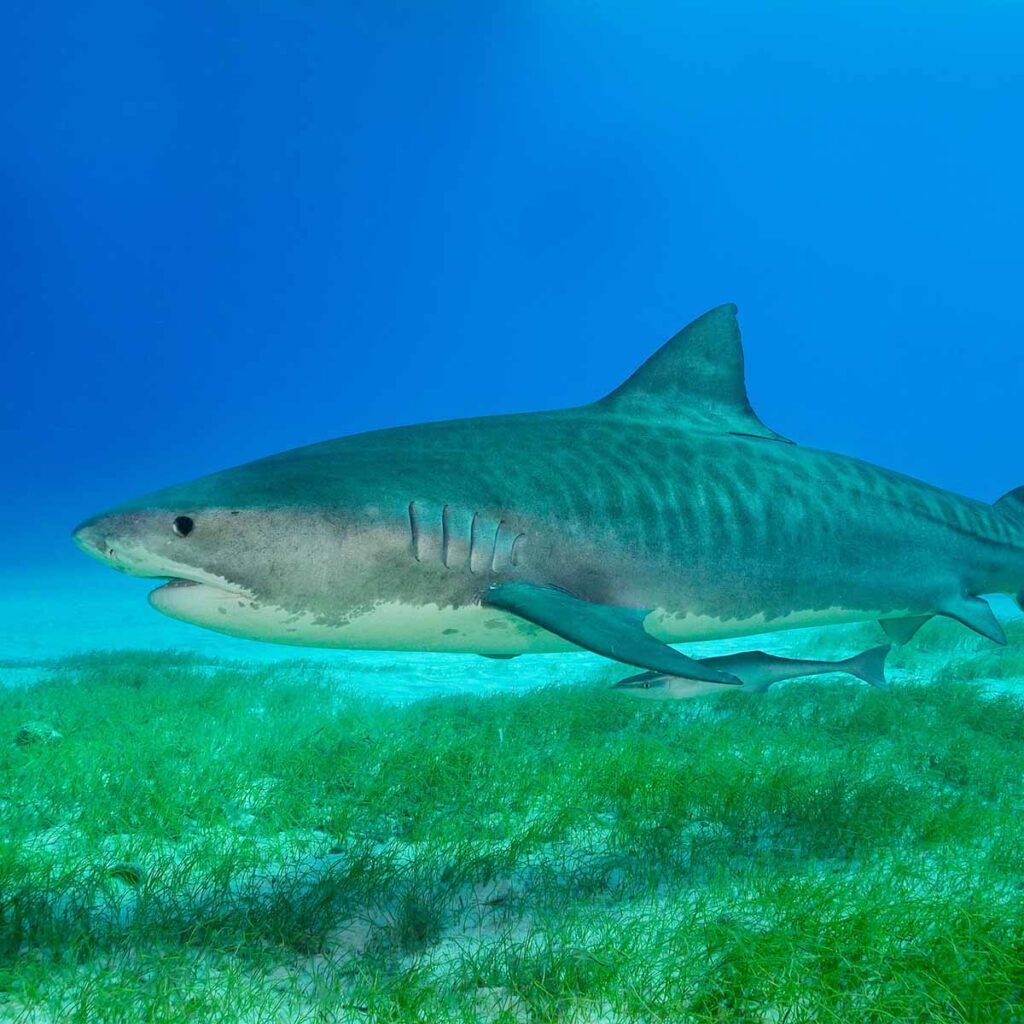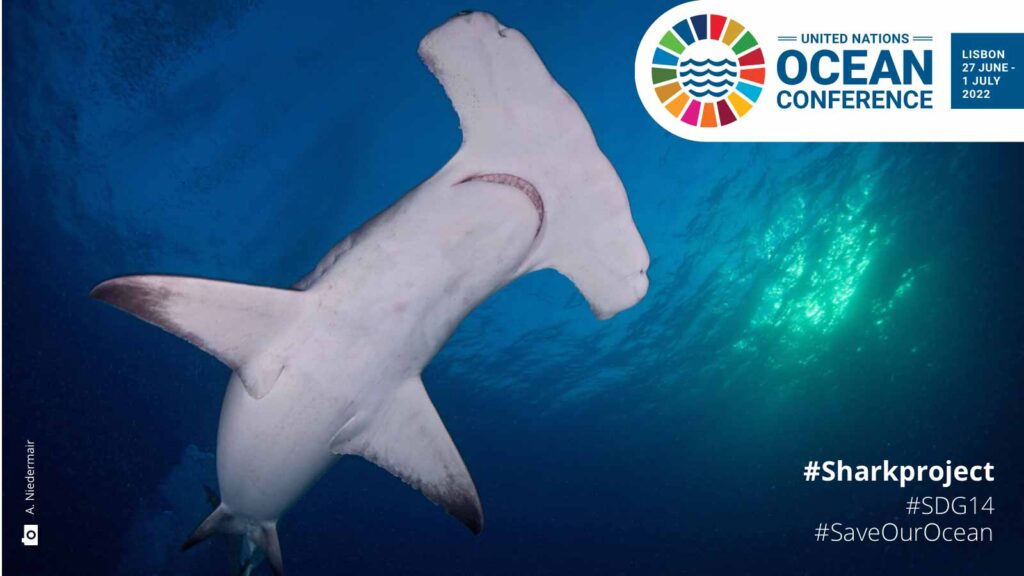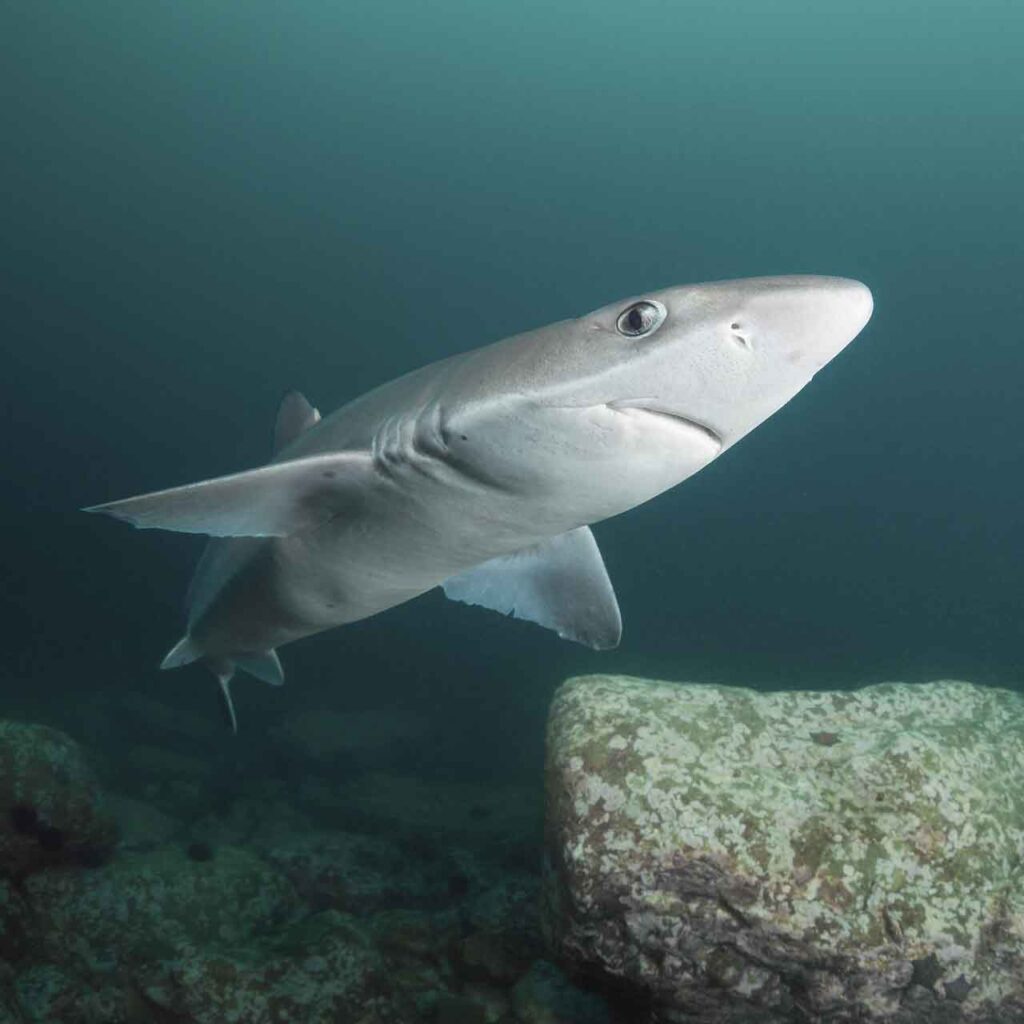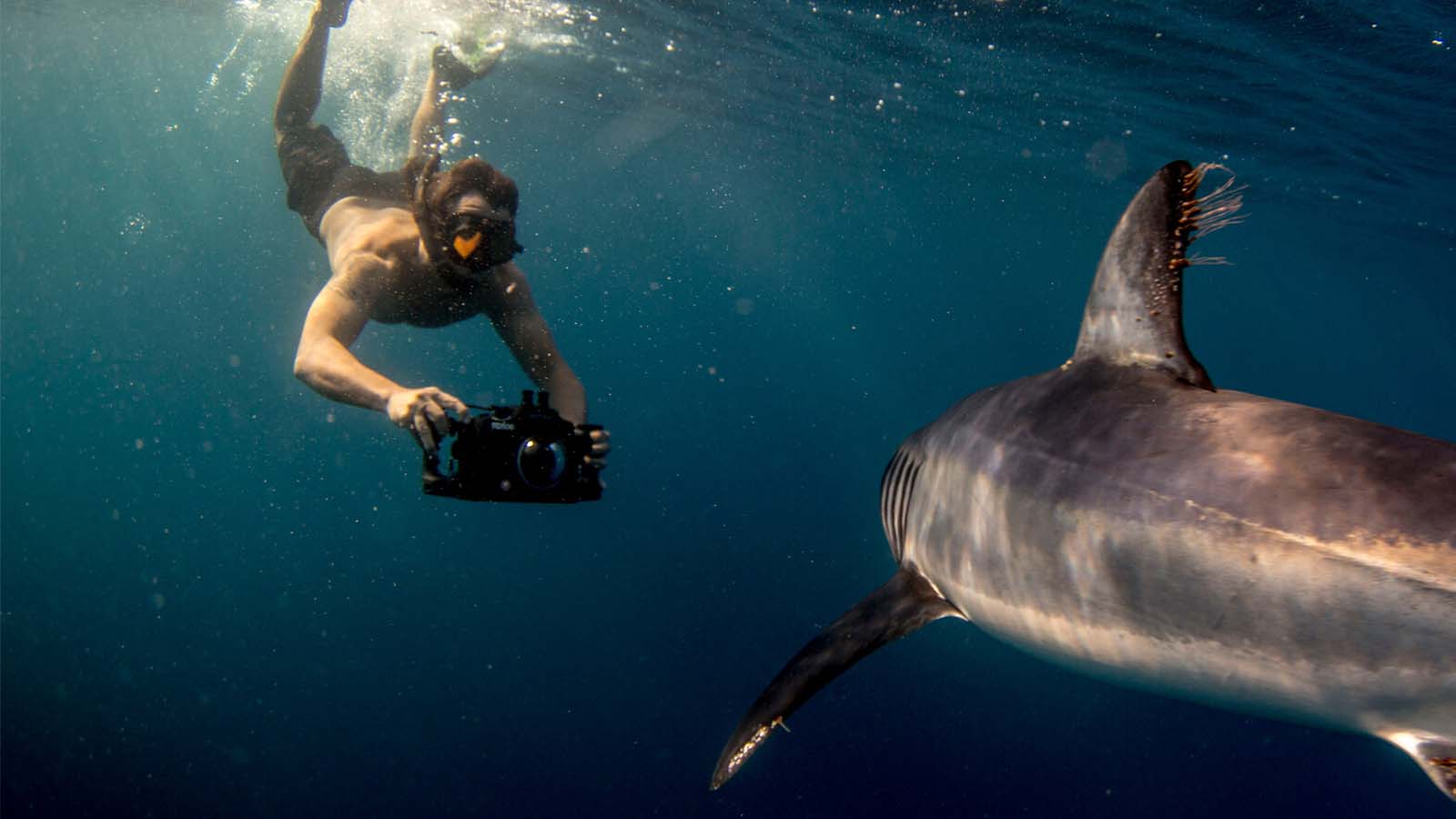
Shark encounter.
more security our goals for people & sharks

Fears help us to recognise and avoid danger. They originate in the brain and are influenced in particular by our environment and experiences, but also by our genes. When it comes to sharks, however, these fears often get out of balance and sometimes lead to panic. We therefore clarify to:
- Sensitive people when dealing with sharks
- Communicate the right behaviour for the next shark encounter
- Draw attention to risks and opportunities
- Explain the behaviour of sharks
- Minimise shark accidents

Recommendations
Encounters with sharks are something special. After all, sharks are impressive but also curious predators. Here are some recommendations to ensure that the encounter remains a memorable experience for both sharks and humans.
Keep respect
Try to enjoy the encounter and never lose respect.
Keep calm
Stay calm, don't shout or fidget. Don't behave like prey and don't swim away in a hurry.
Better in pairs
Always go snorkelling / diving with at least one other person. If a shark appears, stay close together.
Keep track
Always watch the shark, turn with it and maintain eye contact.
Divers
Are you planning a diving trip to an area with regular shark sightings? Here are a few tips:
Before a trip
Familiarise yourself with the local conditions. Be honest with yourself, does it have to be a place with large tiger sharks or hammerheads, or is it perhaps better to encounter other, smaller species first?
On site
- Let local dive guides explain the conditions, shark species and behaviour to you.
- Before diving, talk about the shark species you might encounter and how you will approach the animals.
- Plan for contingencies; talk about termination criteria and emergency measures.
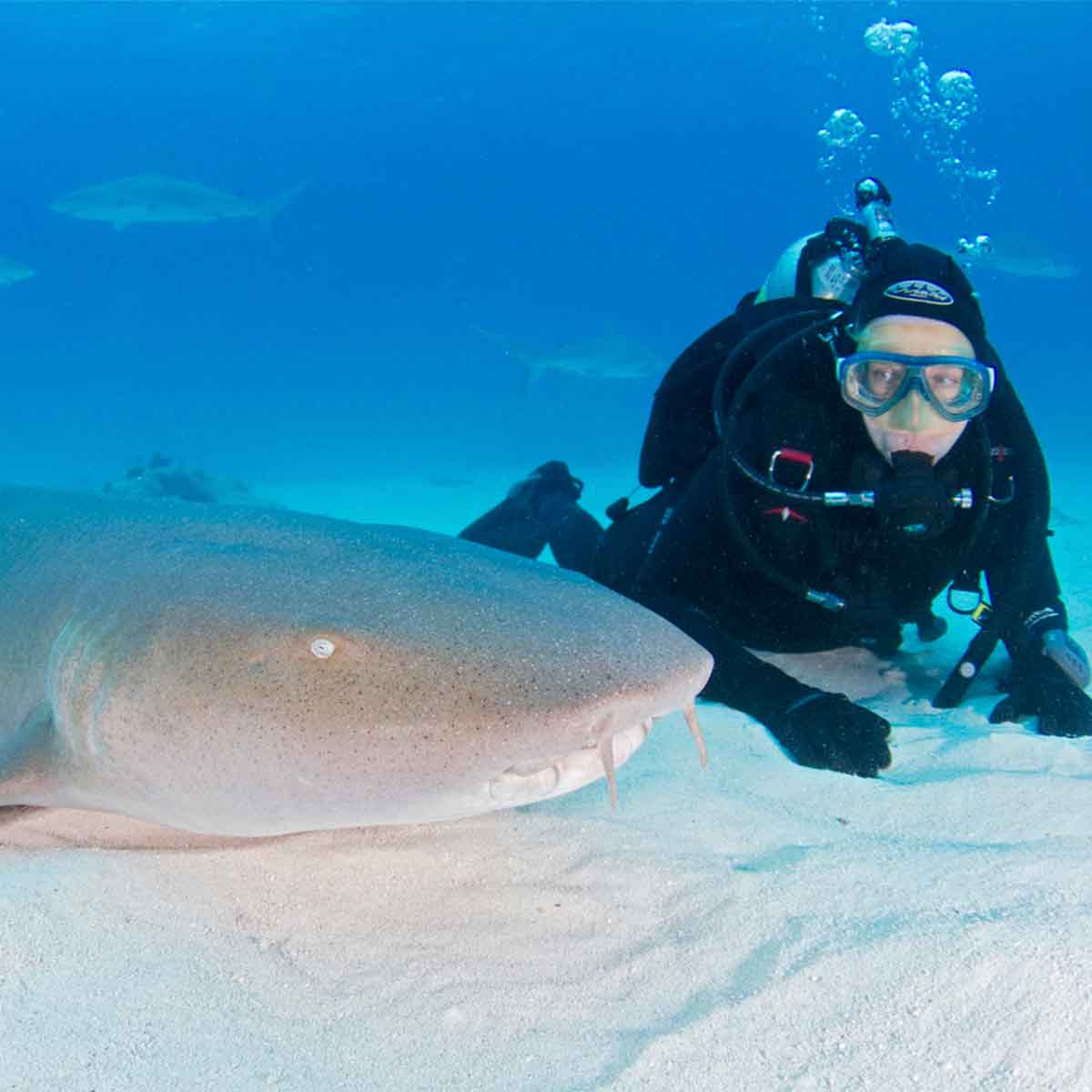
© Harter Klaus Peter
You should pay attention to this
- Do not deliberately touch, harass or attract a shark.
- Be aware of the three-dimensional space around you and look around regularly.
- Should a shark be a little more curious, always keep calm, turn with it and stay upright in the water. Avoid unnecessary and hectic movements.
- Always stay with your group and don’t swim away alone.
- Don’t lose the overview when taking photos and videos.
Caution!
Baited dives pose a greater risk, especially when it comes to large and / or pelagic species. Find out about the statistics and possible accidents of various providers before such dives. Again, start your first shark dives with smaller, less risky species.
Before diving with large sharks, learn to recognise and control possible fears and how to react correctly underwater in panic situations.
You will also learn the correct trim and how to move efficiently and smoothly in the water.
Snorkelling and free diving
Encounters with sharks are very rare, but here are a few tips if you are on holiday in areas where larger species are sometimes found:
- Never travel alone and always be aware of your surroundings.
- Practise your fin stroke to avoid making noise at the surface.
- If a sharkappears, keepvisualcontact and staycalm. Ifyoufeeluncomfortable, swim back toshorewithyourbuddy, but it’sbesttomaintainvisualcontactwiththeshark. Ifthereareboatsnearby, youcan also givethem a signal.
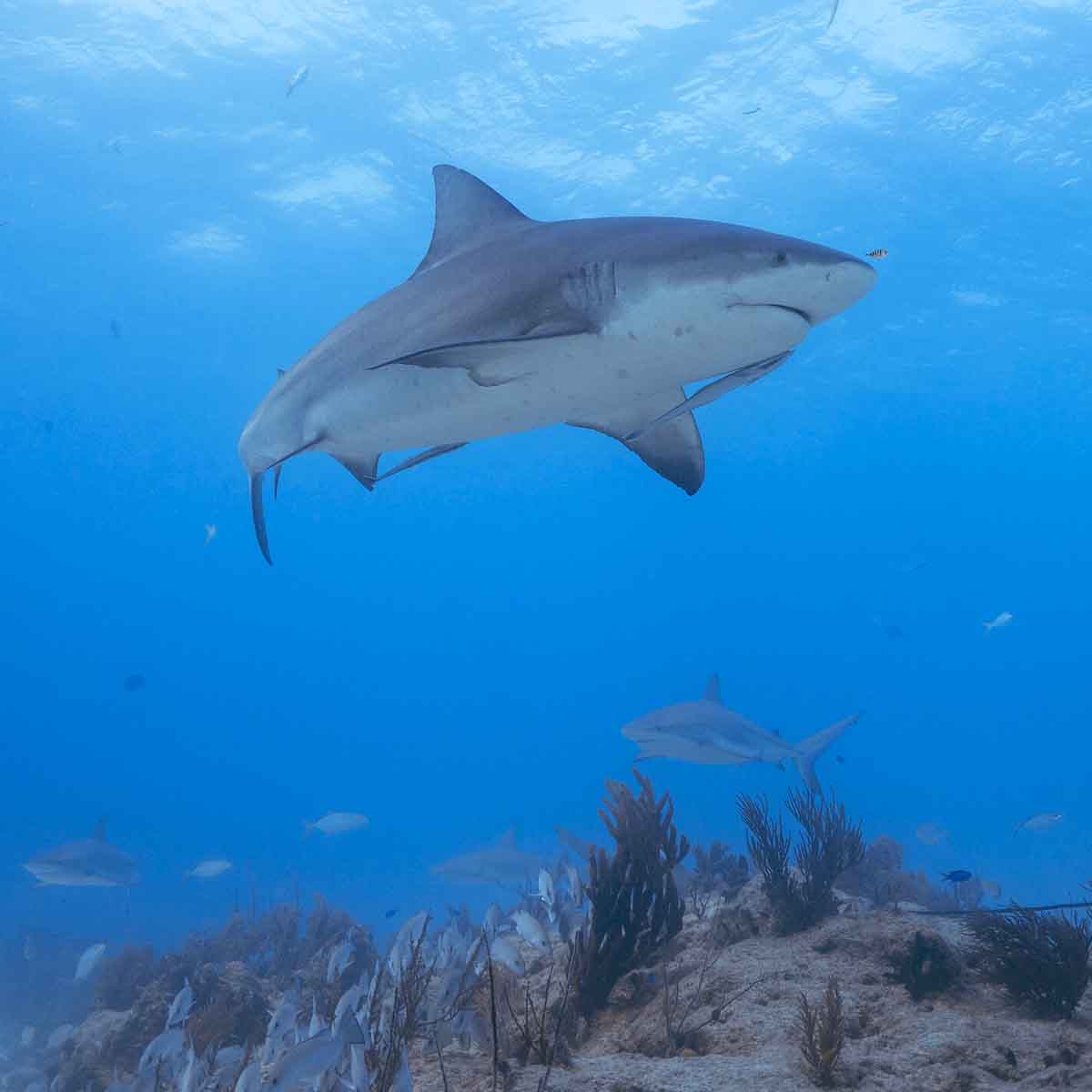
Drogosz Alec
You should pay attention to this
- Find out about currents and wildlife before entering the water.
- Avoid murky waters, as well as morning and evening hours.
- Avoid areas where sharks could be attracted (e.g. by divers, anglers, on jetties where fish waste is thrown into the water or where kitchen waste etc. can end up in the sea, e.g. from safari boats).
Caution!
Even if all these tips are followed, the risk can of course never be ruled out 100%. Sharks are wild predators and can be dangerous to humans in certain situations and regions. Fortunately, as a "normal" holidaymaker, snorkeller or swimmer, such a situation is extremely rare and the risk of a shark accident is negligible.

Contact
your contact person Alex Smolinsky
If you have any questions or other concerns about shark encounters, please feel free to contact Alex from SHARKPROJECT directly.
your contact person Juliane Höfler
If you have any questions or other concerns about shark encounters, please feel free to contact Juliane from SHARKPROJECT directly.
Related posts
View allWe report on Shark protection stay informed!

Don’t miss any events, current projects, educational programs and news! Sign up for our free newsletter and stay up to date!


